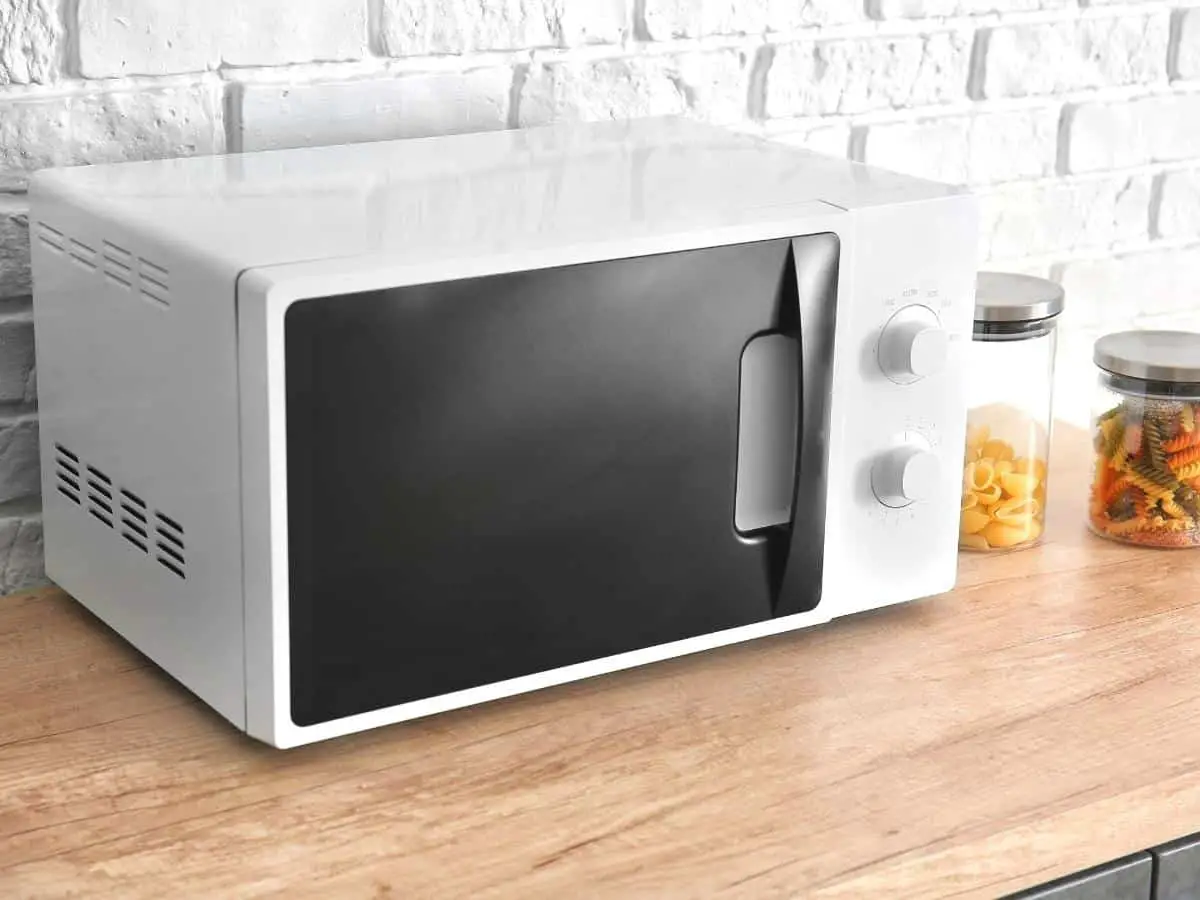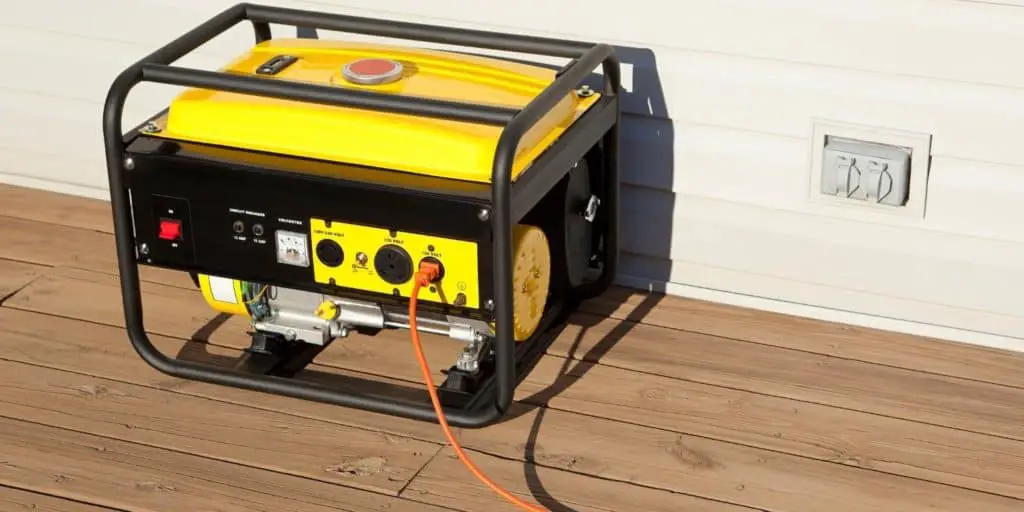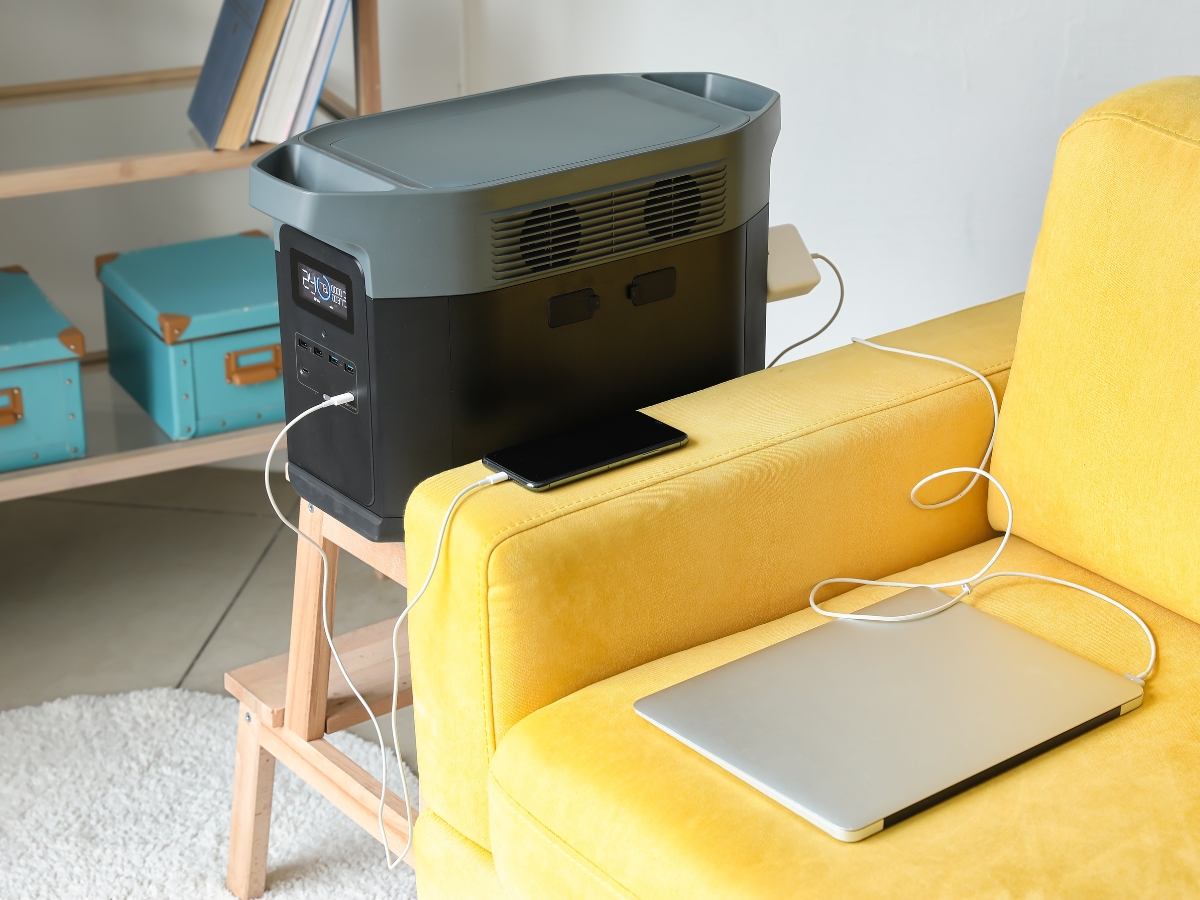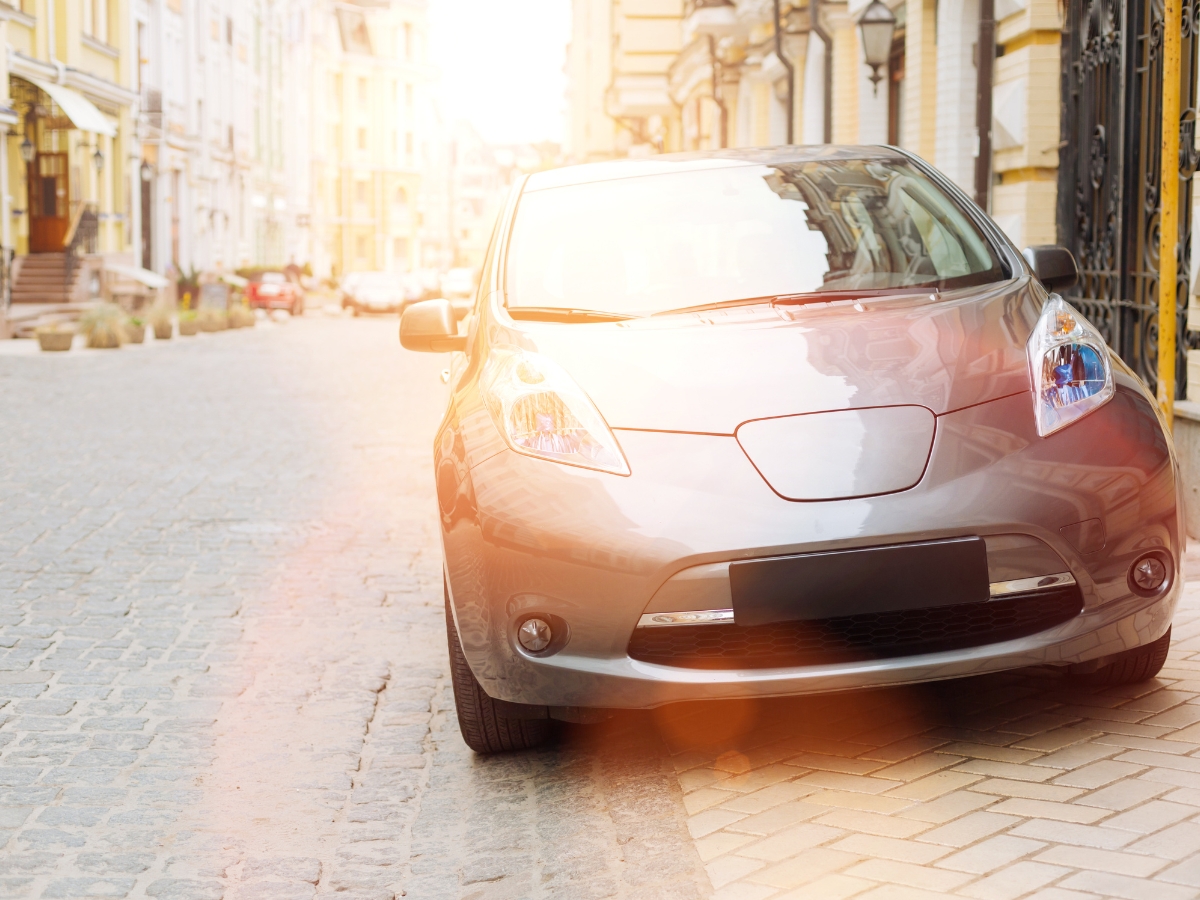Microwaves are a fast and efficient way to reheat or cook food, and you can use them with a generator. However, microwaves do consume a lot of power.
Not all generators and microwaves are created equal, and anyone using a generator to power a microwave should know the basics before beginning.

Step-by-step Guide to Using a Microwave With a Generator
Once you have an appropriate generator, it’s time to use it with the generator with these steps. It’s a simple process, but failure to follow the procedure can damage the microwave in the long run.
Step 1: How Many Watts Does a Microwave Pull?
Ensure the generator is capable of powering the appliance by finding its wattage. Most microwave ovens will have this information printed inside the door or in the owner’s manual.
You will need to know the running wattage of the microwave, not the starting wattage. Multiply the voltage with the amp to find the running wattage of the oven.
The United States Department of Agriculture has developed a method to roughly estimate the wattage of a microwave if the information is not readily available. Anyone trying to find the wattage should begin by placing 1 cup of ice water in a 2-cup glass measuring cup.
Place the cup in the oven and microwave on high for four minutes. The time it takes to boil will give you a good idea of the power of your appliance.
Step 2: Ensure the Generator is Compatible
The microwave should not be connected directly to the generator. You will need to use an extension cord for that. Before purchasing your generator, ensure it has the proper outlets to plug in an extension cord.
Step 3: Hook Up the Cables
Turn on the generator and give it a few minutes to warm up. While waiting, find a heavy-duty extension cord and place your appliance at least 10 feet from the generator. With the generator ready to go, plug the extension cord into the appliance and the generator.
- Angle Plug Allows cord to remain flush to wall in tight spaces
- Sturdy cord Ideal for plugging in large appliances such as washers, dryers, or refrigerators, power tools and other major appliances
- Grip grooves allow easy connection and disconnection of cord
Step 4: Use the Microwave
Cook the food in the microwave. If the oven seems to be acting differently than usual, it could signify the generator is not large enough for the task.
Step 5: Disconnect the Wires
Once you have cooked the food, disconnect the appliance from the extension cord. Allow the generator to idle for a few minutes before turning it off. When the generator is shut down, remove the extension cord from it and put it away to finish the process.

What Size Generator to Run a Microwave
The general rule of thumb is always to ensure your generator has a higher wattage than the microwave. But it is a little more complicated than that for efficiently running a microwave.
After you’ve found the running wattage of your microwave with the method mentioned above, you’ll need to find a generator with a substantially larger power output than the microwave’s running wattage.
In the best-case scenario, the generator will have four times the wattage as the microwave’s running wattage. However, the generator should have double the microwave’s wattage when this isn’t possible.
The generator should be four times as powerful due to the concept of resistive load. The Resistive load converts electrical energy to heat, and generators typically supply a quarter of the resistive load it powers.
Let’s use an example. Will a 3500-watt generator run a microwave? This generator should be large enough to handle most home microwaves.
For instance, if the oven is 800 watts, it would need a generator that can supply at least 3200 watts. In this scenario, our 3500-watt generator will fit the bill and safely power the microwave when cooking.
A generator of around 2000 watts should be adequate for most lower-powered microwave ovens.

Should You Use a Microwave With a Generator?
Now that you know you can use a microwave with a generator, you might wonder if it is a good idea. Running a microwave with a generator is a safe and efficient way to cook food. Microwaves are much more energy efficient in cooking food than ovens or stoves.
Energy Star says microwaves can be up to 80 percent more energy efficient than traditional ovens. A microwave uses 80 percent of its energy to heat food directly. Traditional ovens and stoves only see about 20 percent of the energy used in heating the food.
The savings in energy come from a microwave not having to heat an area but directly heating the food instead.
If you find yourself without power for some time or traveling without electricity, a microwave is a great way to heat food with generator power. It is faster and more energy-efficient to use a microwave than an oven in these situations.
What If the Microwave Won’t Work With a Generator?
If you find the microwave won’t run when hooked up to a generator, there’s a chance the generator is not powerful enough to handle the load.
Recheck the microwave’s wattage and ensure it doesn’t exceed the generator’s output. The generator should be two to four times as powerful as the appliance.
If the wattages line up properly, the generator could be an issue. Ensure you give the generator a few minutes to warm up. You should also check if all the wires are securely connected. If everything checks out, it could be an issue with your generator.
Using a Microwave With a Generator
Using a generator to power a microwave is efficient for heating food when off the electric grid. Electricians recommend a generator with four times the wattage as the microwave. It is safe and will save money over using an oven or stove to prepare food when properly used. In short, you can use a microwave with a generator.
Generator and Microwave FAQ
Dealing with electricity can always be tricky, so let’s consider some common questions about using a microwave with a generator.
Can you run a microwave on a 2000w generator?
A 2000-watt generator can power a 700-watt microwave. While it isn’t entirely in the safe zone of the generator producing four times the microwave’s wattage, it should still be able to power the appliance.
Will a 2000-watt generator run a 700-watt microwave?
A 2000-watt generator can power a 700-watt microwave. While it isn’t fully in the safe zone of the generator, having four times the microwave’s wattage, it should still be able to power the microwave.
Will a 6500-watt generator run a microwave?
A 6500-watt generator has more than enough power to run any commercial microwave. Most microwaves do not exceed 1000 watts, and any generator above 4000 can easily run even the most powerful appliances.
What can a 1500-watt generator run?
A 1500-watt generator can be useful for powering home appliances during a power outage. But the generator is likely too small to power most microwave ovens.





